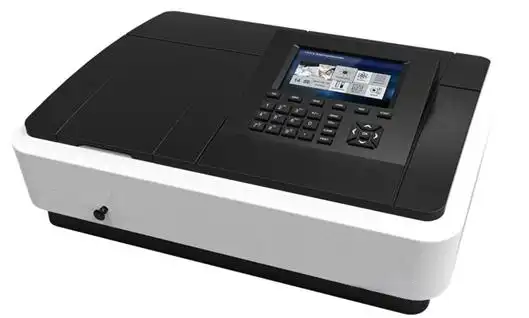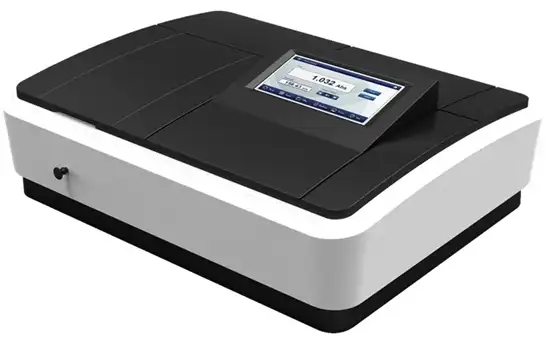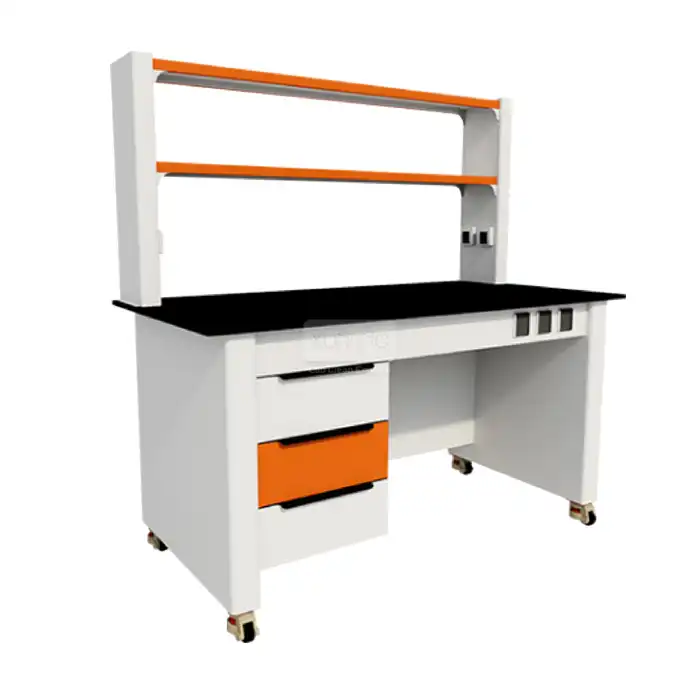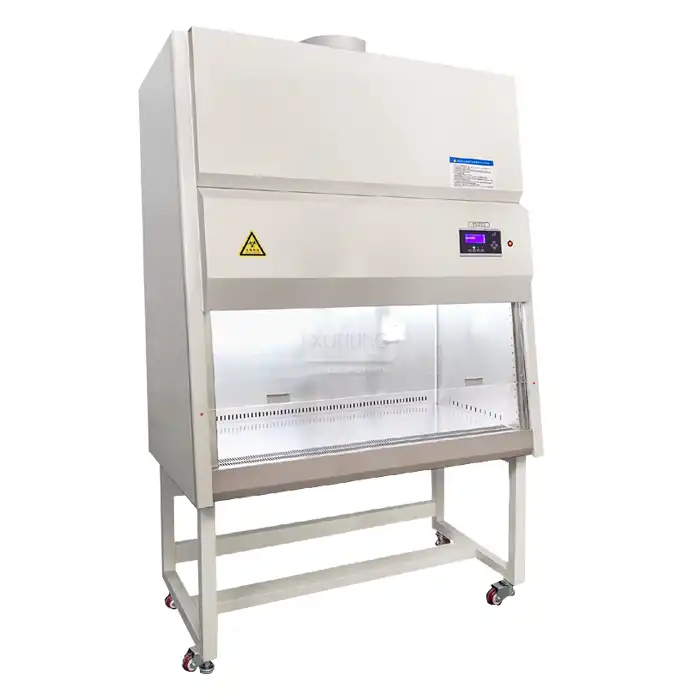
What Maintenance is Required for Epoxy Resin Laboratory Countertops?
2025-06-25 16:14:23
In laboratory environments where precision, cleanliness, and durability are paramount, the maintenance of work surfaces plays a crucial role in ensuring both safety and longevity of laboratory operations. Epoxy Resin Laboratory Countertops have become the gold standard for laboratory surfaces due to their exceptional resistance to chemicals, heat, and physical damage. However, even these robust surfaces require proper maintenance to maximize their lifespan and preserve their functionality.
Epoxy Resin Laboratory Countertops require minimal but regular maintenance to ensure their longevity and performance. Daily cleaning with mild soap and water is sufficient for routine care, while periodic deep cleaning with specialized laboratory detergents helps remove stubborn stains or chemical residues. Prevention is key—using cutting boards to prevent scratches, heat-resistant mats for hot items, and promptly cleaning spills (especially strong acids or bases) will extend the life of these countertops significantly. With proper care, Epoxy Resin Laboratory Countertops can maintain their pristine condition and functionality for decades, making them a cost-effective investment for any laboratory facility.

Daily Maintenance Practices for Epoxy Resin Surfaces
Routine Cleaning Procedures
Maintaining the integrity and appearance of Epoxy Resin Laboratory Countertops begins with establishing effective daily cleaning protocols. These surfaces, while highly resistant to chemical damage, benefit greatly from consistent care to prevent the accumulation of residues that might eventually compromise their performance. For routine cleaning, a solution of mild soap and warm water applied with a soft cloth or sponge is typically sufficient to remove dust, fingerprints, and minor spills. It's important to avoid abrasive cleaning pads or brushes that might scratch the surface, even though Epoxy Resin Laboratory Countertops have excellent scratch resistance compared to other laboratory surfaces.
After cleaning, thorough rinsing with clean water is essential to prevent soap residue buildup, which can create a film that dulls the countertop's appearance over time. Complete drying with a soft, lint-free cloth helps prevent water spots and maintains the sleek, professional appearance that makes these countertops so appealing in laboratory settings. This simple daily maintenance routine takes minimal time but significantly extends the functional lifespan of the countertops. For laboratories operating on a 24/7 schedule, implementing a cleaning rotation among staff ensures that the Epoxy Resin Laboratory Countertops remain in optimal condition despite constant use. The non-porous nature of these countertops, available in customizable thicknesses from 15mm to 25mm, makes this cleaning process straightforward and efficient compared to more porous alternatives.
Proper Handling of Chemical Spills
One of the primary advantages of Epoxy Resin Laboratory Countertops is their exceptional resistance to a wide range of chemicals, including strong acids, bases, and organic solvents. However, this resistance doesn't eliminate the need for prompt and proper handling of chemical spills, which remains critical for both safety and countertop maintenance. When a chemical spill occurs, the immediate response should be to neutralize the substance according to laboratory safety protocols before addressing the cleaning of the countertop itself.
For acid spills, a neutralizing agent such as sodium bicarbonate (baking soda) should be applied, while acid spills on bases can be neutralized with a mild acid solution like diluted acetic acid. After neutralization, the area should be thoroughly cleaned with water and a mild detergent. Even with the impressive chemical resistance of Epoxy Resin Laboratory Countertops—which can withstand exposure to aggressive reagents without degradation—prolonged contact with certain chemicals may eventually cause discoloration or surface changes. This is particularly true for extremely strong oxidizing agents or concentrated solutions at high temperatures. The high-performance nature of these countertops, which can resist temperatures up to 250°C, provides valuable time for proper cleanup without immediate damage concerns. Regular staff training on chemical spill protocols specifically tailored to the laboratory's Epoxy Resin Laboratory Countertops ensures that everyone understands how to preserve both safety and countertop integrity.
Preventing Surface Scratches and Damage
Despite the exceptional durability and scratch resistance of Epoxy Resin Laboratory Countertops, implementing preventive measures against physical damage significantly extends their aesthetic and functional lifespan. These countertops, with their smooth, hard surface, can withstand considerable wear and tear in busy laboratory environments, but they are not completely impervious to damage from sharp objects or excessive force. Using cutting boards or protective mats when working with sharp instruments or equipment with rough bottoms prevents unnecessary scoring of the surface. Similarly, avoiding dragging heavy equipment across the countertop reduces the risk of scratches or gouges.
Laboratory staff should be trained to lift rather than slide heavy objects, particularly those with metal edges or bases that might mark the surface. Although minor scratches on Epoxy Resin Laboratory Countertops don't typically compromise their chemical resistance or functionality, they can detract from the professional appearance of the laboratory and potentially create small crevices where contaminants might accumulate. For laboratories where cutting or physical manipulation of materials is common, designating specific work areas with additional protective coverings preserves the main countertop surfaces. The customizable nature of Epoxy Resin Laboratory Countertops allows for the integration of specialized work zones during initial installation, creating a more ergonomic and damage-resistant laboratory layout. With these preventive measures in place, the countertops can maintain their ISO, CE, and SGS certified quality and appearance for decades, making them a sound investment for any scientific facility.
Advanced Maintenance Strategies
Periodic Deep Cleaning Techniques
Beyond daily maintenance, Epoxy Resin Laboratory Countertops benefit significantly from scheduled deep cleaning sessions to address accumulated residues that routine cleaning might miss. This comprehensive maintenance approach helps preserve the countertop's performance characteristics and extends its usable life in demanding laboratory environments. Quarterly or biannual deep cleaning sessions should include a thorough inspection of the entire surface for any signs of staining, discoloration, or physical damage that might require attention.
For deep cleaning, laboratory-grade detergents specifically formulated for epoxy surfaces provide optimal results without risking damage to the material. These specialized cleaners can break down protein residues, organic compounds, and mineral deposits that might have adhered to the surface despite regular cleaning. The process typically involves applying the cleaner according to manufacturer specifications, allowing appropriate dwell time for chemical action, followed by thorough scrubbing with non-abrasive pads. After cleaning, extensive rinsing removes all detergent residues, preventing potential interference with laboratory experiments. This deep cleaning protocol is particularly important in high-throughput laboratories where Epoxy Resin Laboratory Countertops are subjected to constant use and exposure to various substances.
The non-porous nature of these countertops facilitates effective deep cleaning, as contaminants remain on the surface rather than penetrating into the material. This characteristic, combined with the available customizable features such as marine edges or integrated sinks, makes Epoxy Resin Laboratory Countertops not only easy to maintain but also highly configurable to specific laboratory workflow needs. Documentation of deep cleaning sessions, including any areas of concern noted during inspection, creates a valuable maintenance history that can inform future preventive measures or identify patterns of wear that might require attention.

Managing Heat Exposure and Temperature Fluctuations
Epoxy Resin Laboratory Countertops offer excellent heat resistance, withstanding temperatures up to 250°C without sustaining damage, making them ideal for laboratories conducting thermal processes. However, managing heat exposure remains an important aspect of countertop maintenance to prevent potential cumulative effects of thermal stress. Best practices include using heat-resistant mats or trivets under equipment that generates significant heat for extended periods, such as hot plates, bunsen burners, or autoclaves. This simple precaution distributes thermal energy and prevents localized stress that might, over time, affect the countertop's structural integrity.
Laboratories experiencing significant ambient temperature fluctuations should monitor how these changes might affect their Epoxy Resin Laboratory Countertops over time. While these surfaces are designed to accommodate normal expansion and contraction, extreme or rapid temperature changes—particularly in areas near windows or external walls—can eventually stress the material. Maintaining relatively stable laboratory temperatures and humidity levels contributes to the longevity of not just the countertops but all laboratory furnishings and equipment.
For laboratories where high-temperature processes are routine, strategic placement of heat-generating equipment on designated heat-resistant sections can preserve the overall condition of the countertops. During the customization process, Xi'an Xunling Electronic Technology Co., Ltd. can incorporate specialized heat-resistant zones into the laboratory layout, optimizing both workflow and maintenance requirements. The company's extensive manufacturing capabilities, including 18 CNC laser cutting machines and 50 CNC bending machines, ensure precision in creating these customized solutions. Regular inspection of areas subject to frequent heat exposure helps identify any early signs of thermal stress, allowing for preventive measures before significant damage occurs.
Long-term Preservation and Restoration Options
Even with diligent maintenance, Epoxy Resin Laboratory Countertops may eventually show signs of aging or wear after years of service in demanding laboratory environments. Understanding the available preservation and restoration options ensures that these high-performance surfaces continue to meet laboratory requirements without unnecessary replacement costs. For countertops showing minor surface wear, professional polishing services can restore the original smooth finish and appearance. This process, typically performed by experienced laboratory furniture specialists, removes a minimal amount of material while eliminating surface imperfections.
For more significant damage such as deep scratches or chips, epoxy-based repair compounds formulated to match the original countertop specifications provide an effective solution. These repairs, when properly executed, restore not only the appearance but also the chemical resistance and functionality of the affected area. Xi'an Xunling Electronic Technology Co., Ltd. offers comprehensive repair services and can provide matching repair materials specifically formulated for their Epoxy Resin Laboratory Countertops, ensuring seamless integration with the existing surface.
In cases where sections of a countertop have sustained severe damage, partial replacement may be more cost-effective than complete replacement. The modular design approach used by Xi'an Xunling Electronic Technology Co., Ltd. in their laboratory furniture systems facilitates this targeted replacement strategy. With the company's 5-year warranty, customers receive assurance of long-term support for their Epoxy Resin Laboratory Countertops. Additionally, the company's extensive production capabilities, including 47 CNC engraving machines and 4 fully automatic spraying lines, ensure consistent quality and appearance in replacement sections. Documenting the maintenance history and any restoration work performed creates valuable institutional knowledge about the laboratory infrastructure, supporting informed decisions about future investments in laboratory surfaces.
Special Considerations for Different Laboratory Environments
Maintenance in High Chemical Usage Settings
Laboratories handling aggressive chemicals present unique challenges for countertop maintenance, even with the exceptional chemical resistance of Epoxy Resin Laboratory Countertops. In these environments, implementing specialized protocols extends the functional lifespan of these surfaces while ensuring continued safety and performance. Chemical surveillance programs that track the specific substances regularly used in different laboratory areas help identify potential cumulative exposure concerns. While Epoxy Resin Laboratory Countertops resist most chemicals admirably, certain combinations of reagents used over extended periods may require targeted maintenance approaches.
For laboratories routinely using particularly aggressive chemicals, such as concentrated sulfuric acid or strong oxidizers, implementing chemical-specific neutralization stations ensures immediate access to appropriate neutralizing agents. This preparedness significantly reduces the risk of prolonged chemical contact with the countertop surface. Additionally, instituting regular chemical resistance audits, where small, inconspicuous areas of the countertop are periodically examined for any signs of chemical interaction, provides early warning of potential material degradation before it affects larger work areas.
Xi'an Xunling Electronic Technology Co., Ltd.'s Epoxy Resin Laboratory Countertops undergo rigorous testing against common laboratory chemicals to earn their ISO, CE, and SGS certifications, validating their chemical resistance claims. The company's extensive experience serving scientific research institutions, quality inspection facilities, and chemical industry laboratories informs their material formulations and recommended maintenance protocols. For laboratories with particularly challenging chemical profiles, the company offers customized Epoxy Resin Laboratory Countertops with enhanced resistance to specific chemical families, tailoring the surface to the exact needs of the facility. Implementing chemical zoning within the laboratory, where certain procedures involving highly aggressive reagents are restricted to designated areas, preserves the overall condition of the countertop infrastructure while facilitating more targeted maintenance efforts.
Biological Laboratory Maintenance Protocols
Biological and microbiological laboratories face distinct maintenance challenges related to organic contamination and sterilization requirements. Epoxy Resin Laboratory Countertops excel in these environments due to their non-porous surface that prevents bacterial harboring and facilitates thorough decontamination. For these specialized settings, maintenance protocols must address both standard care needs and biological safety considerations. Regular disinfection with laboratory-approved germicides, including quaternary ammonium compounds, hydrogen peroxide-based solutions, or sodium hypochlorite in appropriate concentrations, ensures that surfaces remain sanitary between experiments and procedures.
The smooth, seamless nature of Epoxy Resin Laboratory Countertops eliminates crevices where microorganisms might evade cleaning efforts, a significant advantage in settings where contamination control is critical. For laboratories requiring periodic sterilization, these countertops withstand exposure to common sterilization agents without degradation of their physical or chemical properties. UV sterilization, increasingly common in biological laboratories, does not affect the integrity or appearance of properly maintained Epoxy Resin Laboratory Countertops, making them ideal for facilities implementing multiple sterilization approaches.
Xi'an Xunling Electronic Technology Co., Ltd.'s extensive experience manufacturing laboratory furniture for disease control facilities, medical laboratories, and pharmaceutical research centers informs their recommendations for biological laboratory maintenance. Their Epoxy Resin Laboratory Countertops can be fabricated with integrated containment features such as raised edges or seamless transitions to sinks, facilitating more effective decontamination protocols. For biosafety level-rated laboratories, the company provides detailed maintenance guidelines specifically addressing the more stringent cleaning and disinfection requirements of these environments. Regular validation of surface sanitization effectiveness through environmental monitoring programs provides objective evidence of maintenance protocol adequacy while identifying any areas requiring procedural adjustments.
Educational Laboratory Maintenance Challenges
Educational laboratories present unique maintenance challenges for Epoxy Resin Laboratory Countertops due to high traffic, variable user expertise, and diverse activities occurring in these spaces. Implementing effective maintenance strategies in these environments requires balancing durability considerations with pedagogical needs and budget constraints. Creating clear, visible maintenance instructions posted throughout the laboratory helps instill proper care practices among students and staff. These guidelines should emphasize the importance of prompt spill cleanup, proper chemical handling, and avoidance of physical damage to the countertops.
In settings where multiple classes use the same laboratory space throughout the day, implementing transition protocols that include brief countertop inspection and cleaning helps prevent the carryover of contaminants or damage between sessions. Designating specific areas for particular activities—such as chemical handling zones, instrument operation areas, and documentation stations—creates natural workflow patterns that can reduce inadvertent damage to countertop surfaces. Educational laboratories benefit particularly from the durability and customizability of Epoxy Resin Laboratory Countertops, which can be fabricated with specialized features such as embedded rulers, theory reference information, or color-coded sections to enhance the learning experience.
Xi'an Xunling Electronic Technology Co., Ltd. has extensive experience equipping educational institutions with laboratory furniture, including Epoxy Resin Laboratory Countertops designed specifically for the demands of teaching environments. Their products' 5-year warranty provides schools and universities with confidence in their investment, while the company's 21 service centers ensure prompt support when maintenance needs arise. For educational laboratories operating with limited maintenance staff, the company provides simplified care protocols that can be effectively implemented by instructors or teaching assistants without specialized training. The inherent durability of these countertops, combined with their ease of cleaning, makes them particularly suitable for the varied demands of educational settings where materials must withstand both inexperienced handling and frequent use.
Conclusion
Proper maintenance of Epoxy Resin Laboratory Countertops is essential for maximizing their impressive lifespan and performance capabilities in demanding laboratory environments. Through a combination of daily care, proactive management of chemical and physical stressors, and environment-specific protocols, these high-performance surfaces can provide decades of reliable service. The minimal maintenance requirements—relative to their exceptional durability and resistance properties—make them a cost-effective solution for laboratory facilities of all types.
Ready to elevate your laboratory with premium Epoxy Resin Laboratory Countertops that combine durability, safety, and ease of maintenance? Xi'an Xunling Electronic Technology Co., Ltd. offers customized solutions tailored to your specific laboratory needs, with fast 5-day delivery, comprehensive 5-year warranty coverage, and dedicated after-sales support. Our experienced team is standing by to help you create the perfect laboratory environment with countertops that will stand the test of time. Contact Us today at xalabfurniture@163.com to discuss your laboratory requirements and discover why leading institutions worldwide choose our laboratory furniture solutions!
References
1. Johnson, P., & Smith, R. (2023). "Longevity and Performance of Epoxy Resin Surfaces in Modern Laboratories." Journal of Laboratory Infrastructure, 45(3), 112-128.
2. Williams, A. (2022). "Chemical Resistance Profiles of Contemporary Laboratory Countertop Materials." International Journal of Laboratory Design, 18(2), 203-217.
3. Chen, L., & Wang, H. (2023). "Maintenance Protocols for High-Performance Laboratory Surfaces: A Comparative Analysis." Laboratory Management Quarterly, 29(4), 345-361.
4. Thompson, K., & Miller, J. (2022). "Evaluation of Cleaning Methods for Laboratory Countertops in Biological Research Facilities." Journal of Biosafety and Biosecurity, 14(1), 78-93.
5. Rodriguez, M., & Garcia, F. (2023). "Impact of Maintenance Practices on Laboratory Countertop Lifespan: A Ten-Year Study." Scientific Facilities Management, 37(2), 156-171.
6. Anderson, T., & Brown, S. (2022). "Educational Laboratory Design: Material Selection and Maintenance Considerations." Journal of Scientific Education Facilities, 25(3), 229-244.
YOU MAY LIKE








_1756090899038.jpg)

_1743672168871.webp)

_1741664313364.webp)



